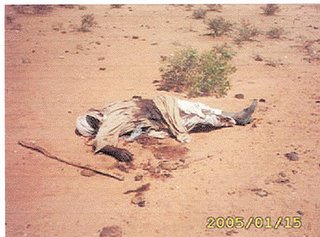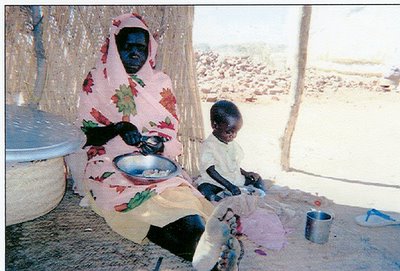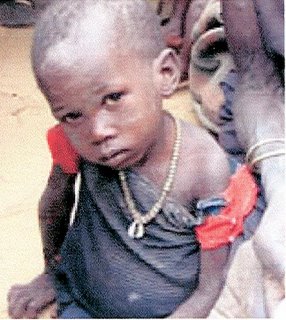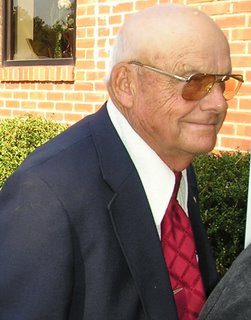
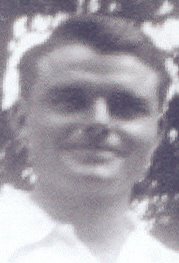
A Dying Breed
In Memory of
Bernard E. Cox (Sept. 18th, 1925 – Feb. 23rd, 2006)
Bernard Elijah Cox, the youngest child of Bedford and Mittie Cox’s ten children, was born Sept. 18th 1925. Bernard was one of a kind; so to speak, at his beginning the mold was broken. He was the family humorist, who was much loved by many nephews and nieces.
Some time ago Bernard told of an experience with the IRS auditor: A phone call comes from the agent wanting to make a visit. Bernard says, come right on down and I’ll carry you out to my office and show you all the records you would like to see. Upon arriving he invited the agent in. Would you like to go out to my office now? Yes. He carried him out to the barn and offered him a feedbag to sit on. Sir, here in this box are all my records. Please help yourself. The agent quickly saw all he wanted and departed without delay.
Bernard, a bachelor, was born, as all his siblings, at the home my grandfather built in 1910. He lived all of his eighty-years in that house, with a sister, Nina, until her death six years ago. Loyally in taking care of the spinster sister during her later years was a time-honored responsibility to him. The house was a wood frame with weather boarding, finished inside with tongue and grove pine walls and ceiling, and in all its ninety-five years of existence has never been painted outside or inside. It is still structurally sound built of timber, pure heart pine, of which is not available in lumber yards today. The home remains furnished with much of the original furniture, some built by his daddy. This speaks volumes to the conservatism of Bernard and his philosophy that there are more important things in life than the show of aesthetically appealing abodes. His usual apparel was matched by the same way of thinking.
Over the years his several lady friends, nephews and nice in-laws, made attempts to inspire enhancement of dress apparel by giving him many gifts of clothing, but they never succeeded, except on some very special occasions. He died with many new gifts in his closet unwrapped. A patched shirt or jeans he wore gave evidence to a miser’s life but not necessarily for the sake of hoarding money. Coordinated attire just didn’t matter, but above all what mattered most were character, heart and soul, “what’s the right thing”. There was never a more generous, giving, serving person, always going beyond the call of duty. When my father, or any other sibling, needed a hand to build a house or a barn, he was there without the asking, as was the nature of all the siblings in that family. The Quaker heritage, having a great granddaddy as a Quaker minister brought to the next generations a strict adherence to the faith, possibly influenced his life’s examples in ways that are hard to comprehend in this modern day.
In addition Bernard was a product of the great depression of 1929. In 1930, Bernard, at age five, with all of the Cox family experienced a traumatic witness of the family’s mortgaged horses and wagon being repossessed by a Goldsboro firm. However, several days later the family was sent word to come get the horses and wagon because the firm had so many teams of mules, horses and farming equipment that could not be redeemed for cash. Fortunately, 1931 brought a better crop year by which the debt was satisfied. This was an era that fixed many indelible traits, habits, in the minds of a generation of people of a now bygone age.
Perhaps one of the most fitting acts for his always timeliness in meeting various chores and responsibilities, the day before his death he fulfilled an appointment with his accountant to pay his last tax bill here on earth. A love for farm life, his work ethic throughout life was seldom equaled. He would buy a new car about every ten to fifteen years. Tractors or other farming equipment were essentials, but otherwise necessities were exceptionally few.
After overcoming past heart and kidney operations, Bernard died, happily I believe, after visiting his 90-year old brother, Lester, on his way to feed the cattle where he fell between the halted tractor wheels, engine still running. Bernard was a dedicated and beloved member of Selah Christian Church where family and many neighbors and friends celebrated his life Sunday February 26, 2006.
Following is a poetic tribute by Mary Kay Cox, given to Bernard on his last birthday:
My dear Uncle Bernard
He’s our favorite one
With his head so shiny
And his eyes so blue
He’s always got a word for you.
Simple and loving that’s what
Our dear Uncle Bernard is
Never boastful or bragging
He’s just humble and true
Even though he may be dragging.
A mule he has ridden
A tractor he has driven
The baby of the bunch
He was probably spoiled too much.
He’s one of a kind
Now he’s in his prime
No telling what he might find
Sunday night he goes a courting
A Dodge he is sporting.
He’s not lazy or shy
Always on the go and waving bye
My dear Uncle Bernard
Yes, he’s our favorite one.
And we love you so.
Mary Kay Cox
September 18, 2005
